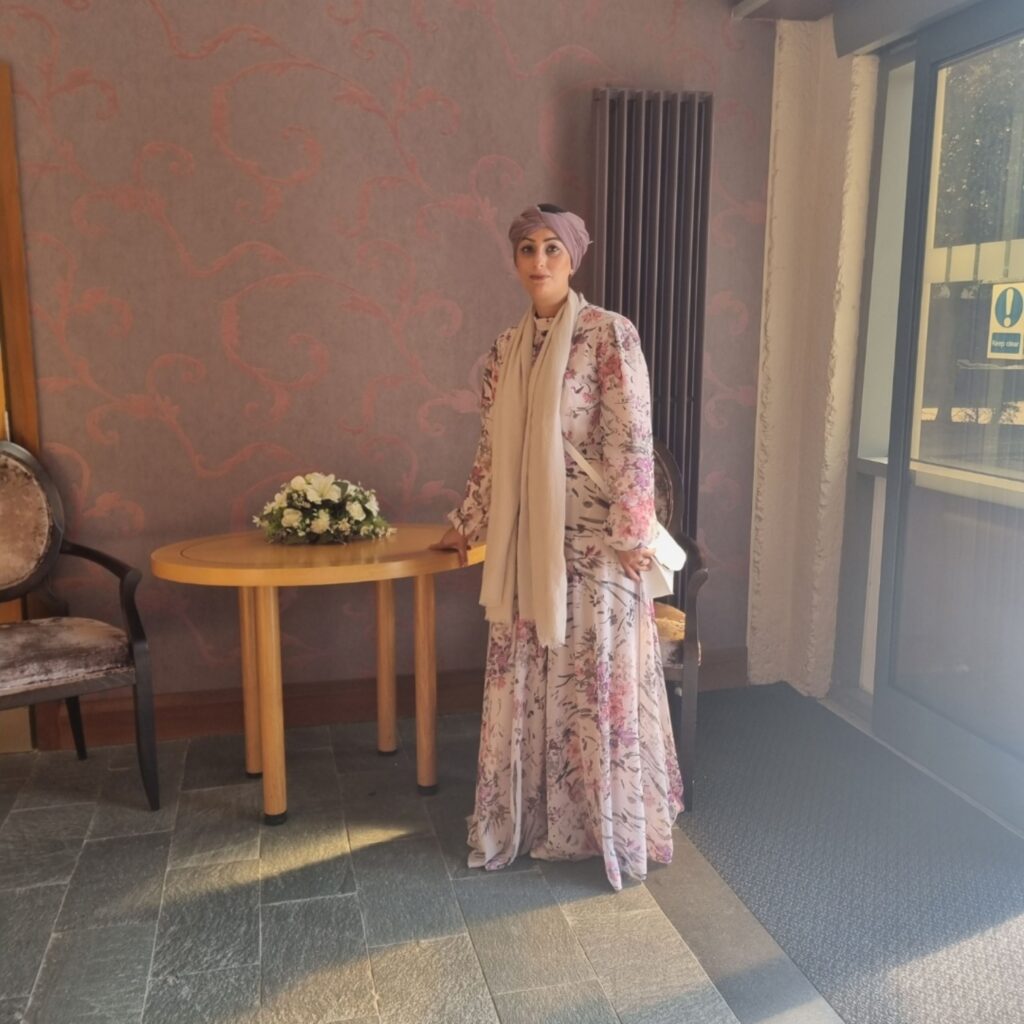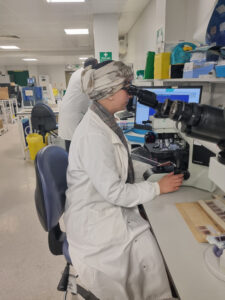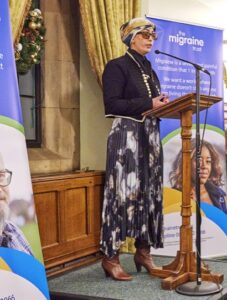“Migraine has been a massive part of my life. It has always evolved, and I have had to evolve with it”
Misba talks about navigating childhood, work and family life with migraine
My parents have both experienced migraine so when I started showing symptoms as a child, they knew what it was straight away. In a way I was lucky as I have always known what I have. They’ve affected me ever since the age of 12. This led to regular sick days from school to having to leave lectures at Uni, to day-to-day life as an adult.
“I am often able to feel an attack before my migraine hits full force”
I feel overly tired, have difficulty concentrating and can be irritable. It is like my body’s warning sign to tell me to slow down. I get intense head pain and vomiting which can feel like a sledgehammer to the head.
Along with medication, there are extra steps which I take to try to ease the pain. My preferred method is using heat, especially in my neck and shoulder area along with using various relaxation techniques. My migraine does vary in duration from a few hours to over a week. I find it is also important to rest once the pain subsides to fully recover as I can feel both physically and mentally drained. Due to the unpredictability of my attacks, I usually see how I am feeling on the day before making plans and it helps to have understanding people around me.
All through out my life I had suffered from episodic migraine, that changed during my first pregnancy where they became chronic. I would like to point out that during my second pregnancy I was migraine free for the whole 9 months. I live with migraine with aura – my symptoms consist of numbness and tingling in hands and face, zigzag lines, blind spots and nausea. The first time I experienced visual aura was frightening as I was standing alone at a train station on my way home from university. I was lucky I managed to get in touch with my family to come and pick me up.
My triggers are stress, lack of sleep and not eating. It can be hard to avoid them, especially with children and a job, but I do what I can.
“Living with migraine can be very isolating”
I’m fortunate to have a strong support system, you can get stuck in a negative cycle when you have migraine and it’s all too easy to spiral down. As well as living with chronic migraine, after my second child was born I had a year of intractable migraine. That was the lowest I’ve ever been, and I barely left the house. I also kept my feelings to myself as I already felt like too much of a burden for my family and friends. I’ve worked on myself a lot and I’m much more open now. My husband has been incredibly supportive throughout this time and has been understanding and keeps me positive. I have worked to build up a good support network to help with my mental health, I have gone through counselling and sought out people in similar situations which has helped a lot.
A lot of people living with migraine worry about starting a family as they fear they won’t be able to cope. For myself it has been a very positive experience, my girls are my everything – when I feel like I’m losing hope they keep me going. It isn’t always easy, but you have to adapt and push on for yourself and your family. I have always been very conscious of my health and how it impacts my children’s routine and am fortunate to have family who can help with school pickups or after school activities. I know not everyone has that option. I’m proud to say I am bringing up empathetic, kind children who bring me water when I am sick and give me back rubs and head massages, they are more aware of how they can help me and in turn others.
I started my treatment journey quite late. Initially I thought I just had to get on with it on my own. It’s been a lot of trial and error and weighing up different side effects. I’d encourage anyone to do their own research. Most GPs aren’t specialists in migraine and so don’t always know about the different options that exist, I feel it’s important that you seek a neurologist specialising in headache or migraine. Knowledge is power and means you can feel more in control of your care.
One thing that has really helped has been asking my family for their opinion on how a treatment is affecting me. They can be objective and help me ahead of my appointments. When you have a bad week, it can be hard to judge how your current treatment is working as the negative thoughts come in. It’s frustrating when different areas get new treatments earlier and you just have to wait until you can access them. The endless waiting is tough, but on the positive side you get a bit of hope every time you try something new.
 Work is important to me. I enjoy what I do, it also gets me out of the house and helps me socialise. I’m a Biomedical Scientist specialising in haematology and blood transfusion and work in a lab that’s open 24/7. At the start of my career that meant no routine and working in busy, noisy labs at all hours of the day and night. Every surface is white and with fluorescent lighting which can be blinding for anyone. Sometimes I could not spend 5 minutes in there before having to walk out.
Work is important to me. I enjoy what I do, it also gets me out of the house and helps me socialise. I’m a Biomedical Scientist specialising in haematology and blood transfusion and work in a lab that’s open 24/7. At the start of my career that meant no routine and working in busy, noisy labs at all hours of the day and night. Every surface is white and with fluorescent lighting which can be blinding for anyone. Sometimes I could not spend 5 minutes in there before having to walk out.
Unsurprisingly this made my migraine get worse. My work have been really supportive and Occupational Health have put a plan in place which has meant coming off night shifts, working in quieter labs with more natural light and doing set shifts. I also now start at 9:30 instead of 9 which gives me time to rest after getting my daughters ready for school. I have also reduced my hours to 2 days a week and feel this is more manageable.
“I have had to evolve with it and somehow live my life”
Through my later childhood and adult life migraine has been a massive part of my life, it has always evolved, and I have had to evolve with it and somehow live my life. I have gone through all the major life events living with migraine: getting my degree, starting my career, getting married and having children. It is all still possible, and I am proof of that. Making sure that you listen to your body, understand your triggers and symptoms and following a management plan which includes medication, alternative therapies, mediation, diet and hydration, supplements and lifestyle changes is very important.
Light sensitivity due to migraine started to affect me in between attacks and this is when finding out about migraine glasses was a game changer for me. I recently started my own small business specialising in migraine glasses called @auraclarity. I use this platform on Instagram to advocate for migraine, educate, management tips and share my own experiences.
 I was invited to an event part of The Migraine Trust in the House of Parliament where I was part of the speaker line up to share my story. Up until that point I had not met anyone with Migraine as bad as me and now I’m part of a WhatsApp group where people understand what we are going through and give each other support when we are having a bad day.
I was invited to an event part of The Migraine Trust in the House of Parliament where I was part of the speaker line up to share my story. Up until that point I had not met anyone with Migraine as bad as me and now I’m part of a WhatsApp group where people understand what we are going through and give each other support when we are having a bad day.
Knowing you aren’t alone is so important. Because you aren’t.


